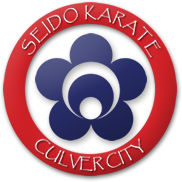The Da Vinci Kata
“Simplicity is the ultimate sophistication.” –Leonardo da Vinci
Learning a kata requires that you go through several stages. First you have to learn the basic pattern and the techniques. Then you have to perfect what you’ve learned. Then you have to deconstruct what you’ve learned and perfected in order to truly understand what the kata is teaching you vis a vis close quarter engagement.
Mastering Stage 1 and Stage 2 kata is challenging enough on its own without adding the ingredient of introspection that comes with Stage 3 kata. Many people prefer to remain in Stages 1 and 2 because, for one reason or another, the introspection of Stage 3 doesn’t appeal to them. There’s nothing wrong with staying in Stage 1 or 2. As they say in Italian, Chi sta bene, non si muove. “If you’re happy where you are, don’t move.”
For those of you who’re interested in entering Stage 3 […]
